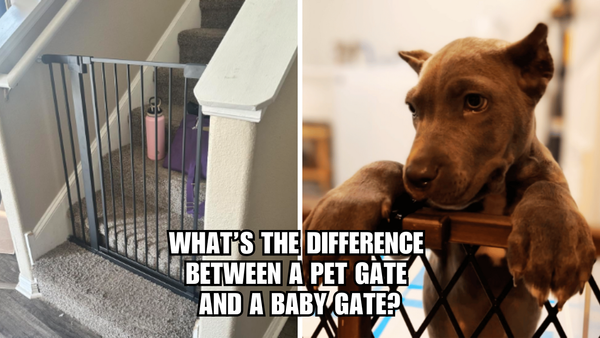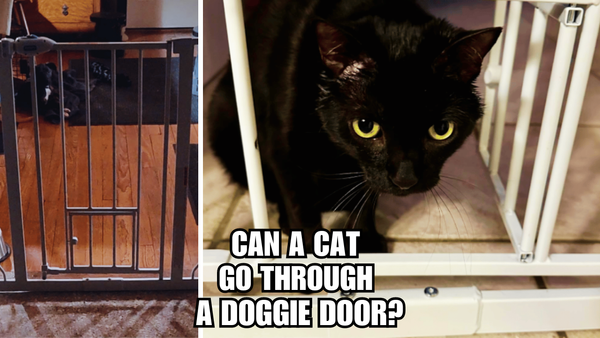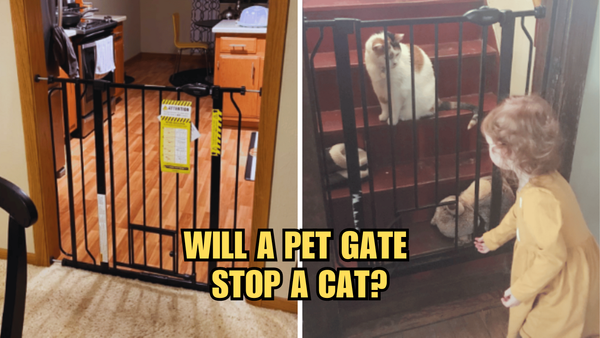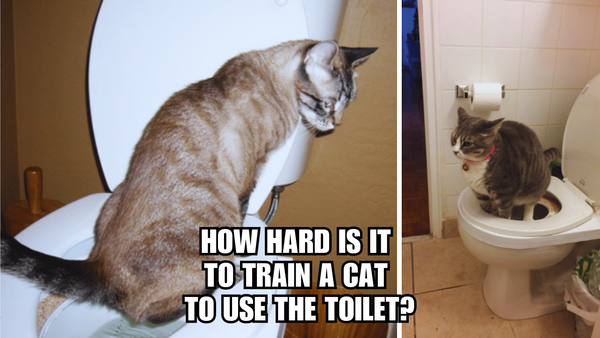Are you a frustrated cat owner trying to find a solution to stop your beloved feline from licking or scratching excessively?
Look no further! In this article, we explore the best methods to manage and prevent excessive licking or scratching in cats, including the effectiveness of various types of collars.
You'll learn everything you need to know about collar options, from basic soft collar designs to more advanced medical collars that are specifically designed to limit licking and scratching.
Our expert tips cover everything from the types of materials used, to how to properly fit and adjust the collar for maximum effectiveness.
Discover how to help your cat break the cycle of licking and scratching with our actionable solutions. Our goal is to empower you with the knowledge and resources needed to keep your feline companion happy, healthy and well-protected.
So, keep on reading to learn more about the best kind of collar for a cat to stop licking!
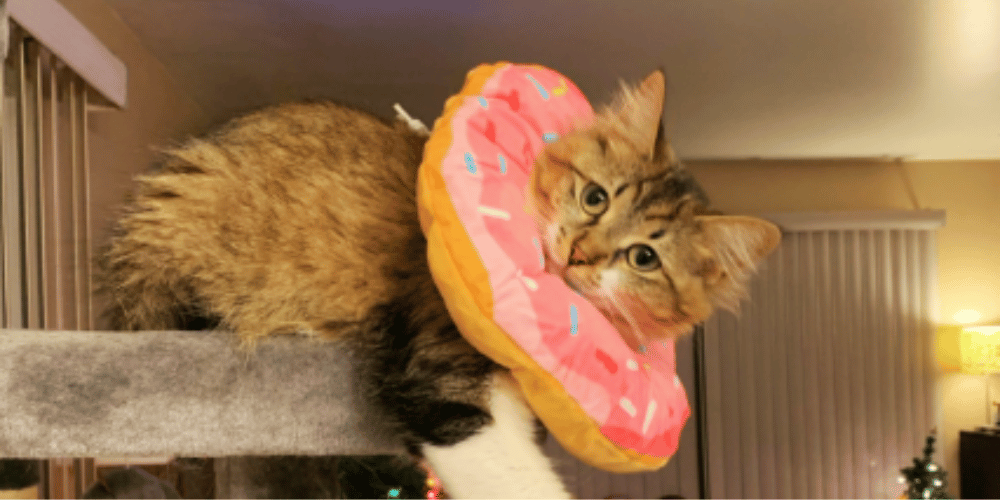
Understanding the Different Types of Cat Collars for Stopping Licking
Cats are known for their cleanliness, but sometimes, they can become obsessed with grooming to the point where it becomes harmful.
If your cat is constantly licking or chewing on their skin, it can lead to irritation, infections, and hair loss. In severe cases, it can even cause open wounds.
That's why many cat owners use special collars that can prevent their cats from licking or biting themselves. In this section, we'll explore the different types of cat collars that you can use to stop your cat from licking.
Elizabethan Collars (E-Collars)
Elizabethan collars, or E-collars for short, are perhaps the most well-known type of cat collar for stopping licking. E-collars are essentially plastic cones that fit around your cat's neck, preventing them from being able to reach and lick themselves.
E-collars can be quite effective, but they can also be cumbersome and uncomfortable for your cat to wear. Some cats will also find ways to get around E-collars by squirming out of them.
Soft Collars
Another popular type of cat collar for stopping licking is the soft collar. These collars are made from soft, flexible materials like foam, so they're more comfortable for your cat to wear than E-collars.
Soft collars typically have a wider circumference than E-collars, so your cat won't be able to turn their head to reach areas they shouldn't be licking.
Some soft collars also have an inflatable design that can be adjusted to fit your cat's neck size.
Herbal Collars
If you're looking for a more natural solution, you might want to consider an herbal collar. These collars are infused with natural scents that cats typically find unpleasant, like lavender or citrus.
As a result, your cat will be less likely to lick themselves while wearing an herbal collar. However, keep in mind that some cats may not be bothered by the scent and that these collars may not be as effective as other types.
Medical Collars
Medical collars are typically used by veterinarians to prevent cats from licking or biting at surgical sites.
These collars are made from a combination of hard and soft materials, so they're more comfortable for your cat to wear than an E-collar. They're also adjustable, so you can ensure a perfect fit for your cat's neck size.
However, medical collars tend to be more expensive than other types of cat collars.
DIY Collars
If you're feeling crafty, you might want to try making a DIY collar for your cat to prevent licking. There are plenty of tutorials online for making collars out of soft materials like fleece or cotton.
However, keep in mind that DIY collars may not be as effective as professionally made collars, and they may not be as safe for your cat to wear.
No matter which type of collar you choose, remember that it's important to supervise your cat while they're wearing it. Make sure your cat can breathe easily and that the collar isn't causing any discomfort or rubbing on their skin.
With the right collar and some patience, you can help your cat break their licking habit and keep their skin healthy and free from harm.
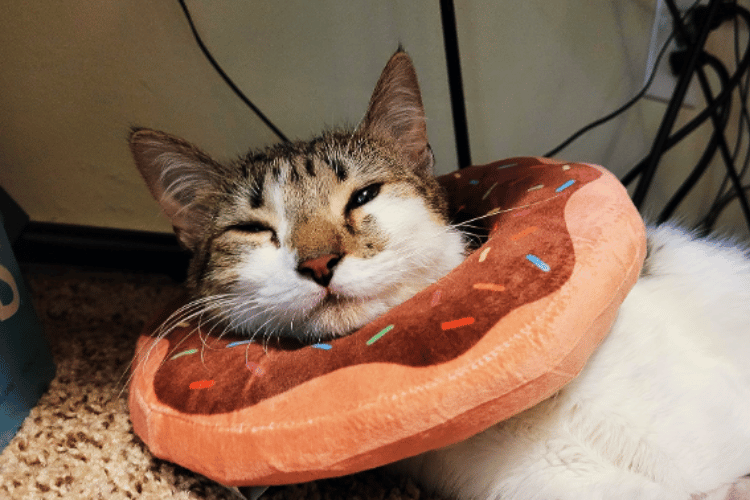
FAQs What Kind of Collar for a Cat to Stop Licking?
It can be hard to find the right collar for your cat to stop them from licking their fur. With so many different types of collars on the market, it can be difficult to know which one is best for your pet.
We understand the struggle of finding the right collar for your cat, which is why we've compiled a list of the most frequently asked questions about collars for cats to stop licking.
With this information, you can make an informed decision about which collar is best for your pet.
As a cat owner, you may have encountered the frustrating habit of your feline friends constantly licking themselves. While grooming is a natural behavior for cats, excessive licking can lead to various issues such as skin irritation, hair loss, and even infections.
If you're searching for a solution to help prevent your cat from excessive licking, here are some frequently asked questions to guide you:
Why do cats lick themselves excessively?
Cats have a strong instinct to keep themselves clean, and licking is their primary method of grooming. However, excessive licking can be a sign of underlying issues such as allergies, anxiety, boredom, or even medical conditions. It's essential to identify the cause to address the problem effectively.
Can a collar help stop my cat from excessive licking?
Yes, a specially designed collar can play a significant role in preventing your cat from excessive licking. These collars are often referred to as "lick deterrent collars" or "Elizabethan collars." They create a physical barrier that prevents the cat from reaching certain areas of their body, reducing the opportunity for excessive licking.
What type of collar is suitable for my cat?
When it comes to choosing a collar to stop your cat from licking, consider the following options:
- Plastic Elizabethan Collars: These traditional cone-shaped collars provide excellent protection by preventing the cat from accessing their body. They are available in various sizes to fit different breeds and can be purchased at pet stores or recommended by your veterinarian.
- Soft or Inflatable Collars: These collars are more comfortable for your cat to wear compared to the rigid plastic ones. They still create a barrier but allow for more freedom of movement and better visibility.
- Alternative Collars: Some innovative products on the market offer alternative designs, such as fabric collars with adjustable closures. These collars are generally more lightweight and less restrictive while still preventing excessive licking.
How do I introduce a collar to my cat?
Introducing a collar to your cat may require some patience and positive reinforcement. Here's a step-by-step guide:
- Start by allowing your cat to sniff and explore the collar before putting it on.
- Gradually adjust the collar's fit, ensuring it is snug but not too tight.
- Monitor your cat closely during the initial wear to ensure they are not distressed or struggling excessively.
- Offer treats, praise, and gentle play to create positive associations with the collar.
Are there any alternatives to collars for stopping excessive licking?
Collars may not be suitable for all cats or situations. If your cat refuses to wear a collar or if you're looking for alternative methods, consider the following options:
- Behavior Modification: Identify and address the underlying cause of the excessive licking. Consult with a veterinarian or animal behaviorist to develop a plan tailored to your cat's specific needs.
- Environmental Enrichment: Provide stimulating toys, scratching posts, and interactive playtime to alleviate boredom and redirect your cat's focus away from excessive grooming.
- Medical Intervention: In some cases, addressing underlying medical conditions or allergies through medication or specialized treatments may be necessary. Consult with your veterinarian for appropriate guidance.
Remember, each cat is unique, and what works for one may not work for another. It's always best to consult with your veterinarian for personalized advice and recommendations tailored to your cat's specific needs.
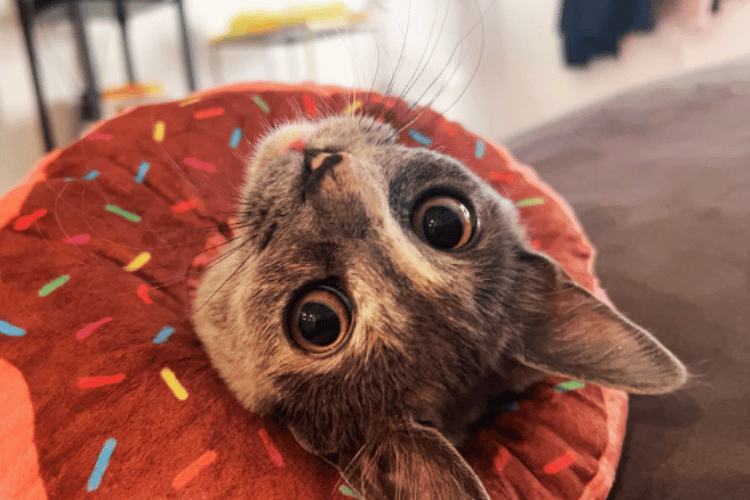
We hope this article has helped you choose the best collar for your cat to stop licking. From cone-shaped collars to bitter-tasting collars, there are a variety of options available to help you curb your cat's licking behavior.
Ultimately, the right collar for your cat will depend on your cat's unique needs and preferences. So take the time to consider all the options and choose the one that will work best for your furry friend.
With the right collar, you can be sure that your cat will be free from the irritation of licking in no time!
Thank you for visiting LegitLists we hope this helps you make a legitimate choice!



